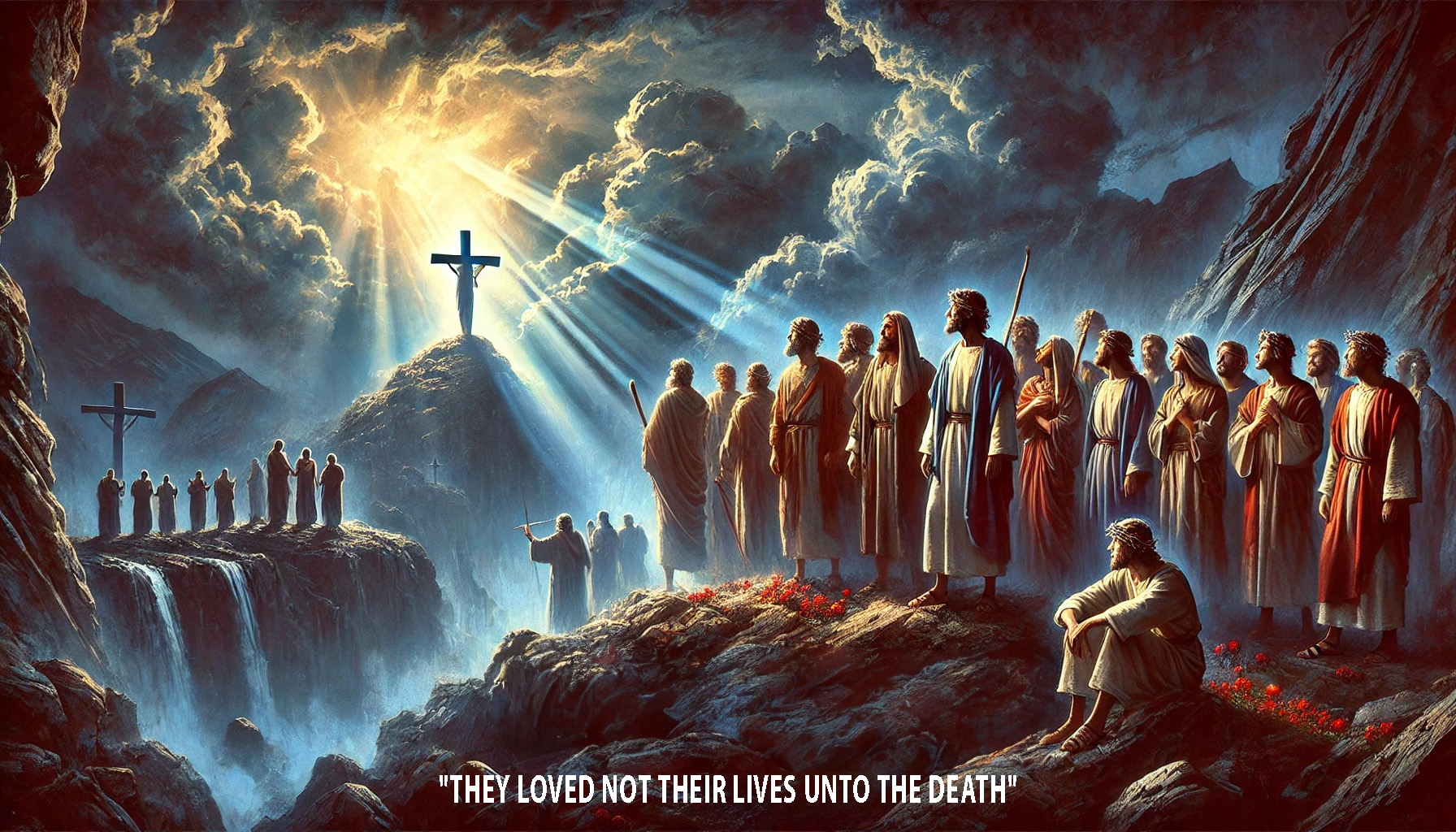Understanding Revelation 12:11: "They Loved Not Their Lives Unto the Death"
"They Loved Not Their Lives Unto the Death": The Ultimate Commitment to Faith
The phrase "they loved not their lives unto the death" is a powerful testament to the unwavering commitment and dedication of early Christians, and it remains a profound challenge to believers today. Found in the book of Revelation (12:11), this phrase underscores the willingness of the faithful to endure even death rather than renounce their allegiance to Christ. It echoes the call to radical discipleship that Jesus issued when He said, "Whoever wants to be my disciple must deny themselves and take up their cross and follow me" (Matthew 16:24, NIV). This level of devotion is not just about endurance but reflects the deep conviction that the ultimate victory over Satan and evil is achieved through a willingness to sacrifice everything—even life itself—for the sake of the gospel.
The Call to Radical Discipleship
Jesus' call to discipleship was never one of ease or comfort. When He instructed His followers to "deny themselves and take up their cross," He was inviting them into a life of self-sacrifice and total commitment. The cross, in Roman times, was a symbol of death and suffering, and Jesus' words made it clear that following Him would require a willingness to face persecution, hardship, and even death.
For the early Christians, this was not a theoretical possibility but a harsh reality. Many faced brutal persecution under Roman rule, where they were forced to choose between loyalty to Christ and their own lives. The martyrs of the early church, who chose death over denial, exemplify the ultimate expression of this call to discipleship. Their stories, preserved throughout Christian history, inspire and challenge believers to live with the same level of commitment.
The Power of Sacrificial Faith
The phrase "they loved not their lives unto the death" also speaks to the transformative power of sacrificial faith. This willingness to lay down one’s life for Christ is a declaration that eternal life with God is of far greater value than anything the world can offer. It is a statement of faith that proclaims the believer’s absolute trust in God’s promises, even in the face of death.
This kind of faith is not about seeking martyrdom but about a deep-seated conviction that nothing—not even death—can separate the believer from the love of Christ (Romans 8:38-39). It is a faith that transcends fear and empowers believers to stand firm, no matter the cost. In this way, the ultimate victory over Satan is achieved, not through force or human effort, but through a steadfast faith that values Christ above all else.
The Legacy of the Martyrs
The legacy of those who "loved not their lives unto the death" is profound. Throughout Christian history, the stories of martyrs have served as a powerful witness to the strength and truth of the Christian faith. These individuals, who chose death over renouncing their faith, left behind a testimony that has inspired countless others to hold fast to their beliefs in the face of adversity.
Martyrdom, while extreme, highlights the broader principle that true discipleship involves a willingness to sacrifice for the sake of the gospel. This could mean giving up comforts, enduring hardship, or facing opposition. The martyrs remind us that following Christ often comes with a cost, but they also remind us that this cost is worth it, as it leads to eternal life and ultimate victory.
The Ultimate Victory Over Satan
In the context of Revelation, the phrase "they loved not their lives unto the death" is linked to the ultimate triumph of good over evil. The believers’ willingness to sacrifice their lives is a key element in their victory over Satan. This victory is not won through physical strength or worldly power but through the spiritual power of faith and testimony.
Satan’s primary weapon is fear—especially the fear of death. But when believers are no longer afraid to die because they trust in the promise of eternal life, Satan’s power is broken. Their faith becomes a weapon that overcomes the enemy, proving that the power of Christ is greater than anything Satan can wield. This is the paradox of Christian victory: it is achieved through apparent defeat, where the act of dying for one’s faith becomes the ultimate act of defiance against the forces of evil.
Conclusion
"They loved not their lives unto the death" is a phrase that encapsulates the essence of Christian discipleship—a call to follow Christ with a commitment so deep that even death is not feared. It challenges believers to examine the depth of their own faith and their willingness to sacrifice for the gospel. The martyrs who exemplified this commitment serve as enduring witnesses to the power of sacrificial faith, inspiring Christians to stand firm in their own walk with God.
In a world that often values comfort and self-preservation above all, this phrase serves as a stark reminder of the cost of true discipleship. Yet, it also reminds believers that the ultimate victory over Satan is not won by clinging to life but by trusting in the promises of Christ, even unto death. This is the essence of the Christian faith: a life lived with the courage to lose everything for the sake of Christ, knowing that in Him, we gain everything.

